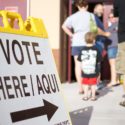Enrique Vilella commented, “In a fair plebicite all possible options, however historic, complex or innovative, must be included. Otherwise a built in bias will be recognized by anyone or any group, government or international forums, giving rise to claims it is unnacceptable and delaying forever any action to resolve.”
We agree.
Should that include “enhanced commonwealth”?
The problem is in the word “possible.” The U.S. government has said many, many times that “enhanced commonwealth” is not a possible status option. The federal government does not accept and says that they will not accept the definition of “commonwealth” that the commonwealth party has offered in the past.
- In the last Congressional hearing on Puerto Rico’s status, Senator Wyden stated that “enhanced commonwealth” is “not a constitutionally viable option.”
- Attorney General Thornburg stated that several parts of the proposed “enhanced commonwealth” are “totally inconsistent with the [U.S.] Constitution.”
- The President’s Task Force on Puerto Rico’s Status said, “The Federal Government may relinquish United States sovereignty by granting independence or ceding the territory to another nation; or it may, as the Constitution provides, admit a territory as a State, thus making the Territory Clause inapplicable. But the U.S. Constitution does not allow other options.”
- The Supreme Court in Puerto Rico v. Sanchez Valle summarized and confirmed: “The Executive Branch has recognized that Puerto Rico remains a U.S. territory subject to Congress’s authority. A 1994 Office of Legal Counsel opinion explained that Congress may not create a sovereign territory consistent with the Constitution, and since then, the Department of Justice has repeatedly stated the same view to Congress in connection with proposed legislation about Puerto Rico. Presidential task force reports in 2005, 2007, and 2011 have likewise confirmed that Puerto Rico is not a sovereign and that it could become one only if it were to attain statehood or become an independent nation.”
We could list many more examples.
The supporters of “enhanced commonwealth” seem to want to vote on an undefined “commonwealth” option, which they hope then to negotiate with someone in the federal government. They have not so far been able to provide a new definition of commonwealth which the federal government has not rejected.
What else should be included?
The possible status options are these:
- territory
- state
- independent nation (with or without free association)
Previous plebiscites in this century have included those three options, but the “commonwealth” party continues to claim that their option should be on the ballot. Some leaders have claimed that leaving the fantasy option off the ballot “disenfranchises” voters.
This claim prevents a vote on statehood vs. independence. Senator Wyden pointed this out:
The Justice Department review is essential to ensuring the proposed new commonwealth status or a proposal with similar features will not be on the ballot.
The new commonwealth option continues to be advocated as a viable option by some. It is not. Persistence in supporting this option—after it has been rejected is inconsistent with the U.S. Constitution by the U.S. Justice Department, by the bipartisan leadership of this committee, by the House and by the Clinton, Bush, and Obama Administrations—undermines resolution of Puerto Rico’s status question.
Other status options could also be included. Voters could be asked whether they would like to be a protectorate of Denmark, for example. But there is really no point to including that, because becoming protectorate of Denmark is not a real option. Neither is “the new commonwealth option,” according to the judicial, legislative, and executive branches of the U.S. federal government.
Historic, complex, or innovative
Historic, complex, or innovative status solutions could be interesting to consider. But a status option that is not consistent with the U.S. Constitution is not necessarily complex or innovative. It is illegal, though.
It is not possible under the law. So it should not be on the ballot.
A vote for or against statehood should be simple and clear. If statehood wins again, Congress will know that Puerto Rico truly wants statehood, and they will have a responsibility to take action.
If there is a resounding NO vote, then it will be clear that Puerto Rico does not want statehood. We don’t think that will happen. However, we know that all it will take to get that result is for people who want statehood to stay home. Let’s not do that.
Who do you know who might need a ride to a polling place or help with voting? Who do you know who has registered to vote for the first time and might need some encouragement? It’s time to get ready to cast YES ballots.








No responses yet